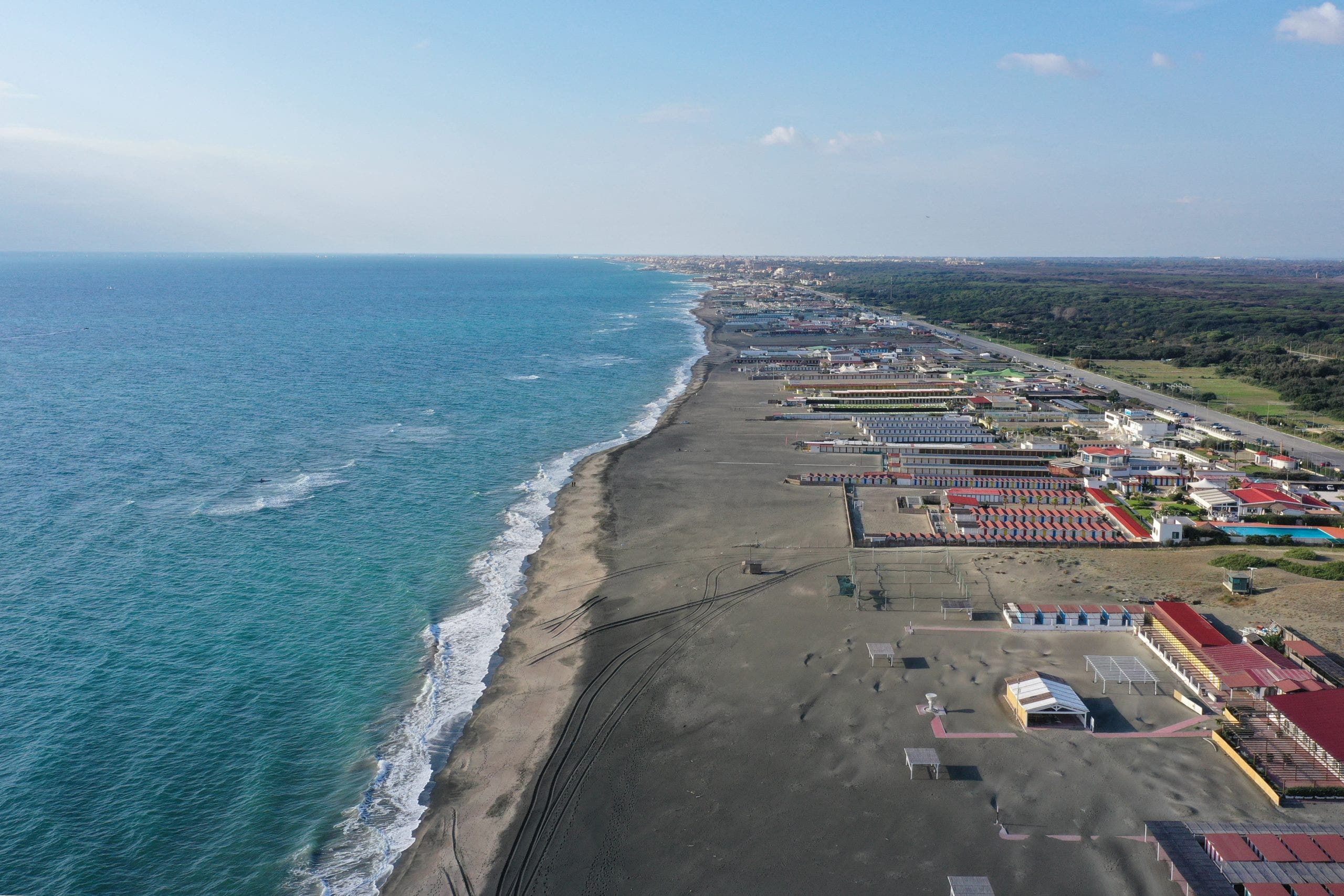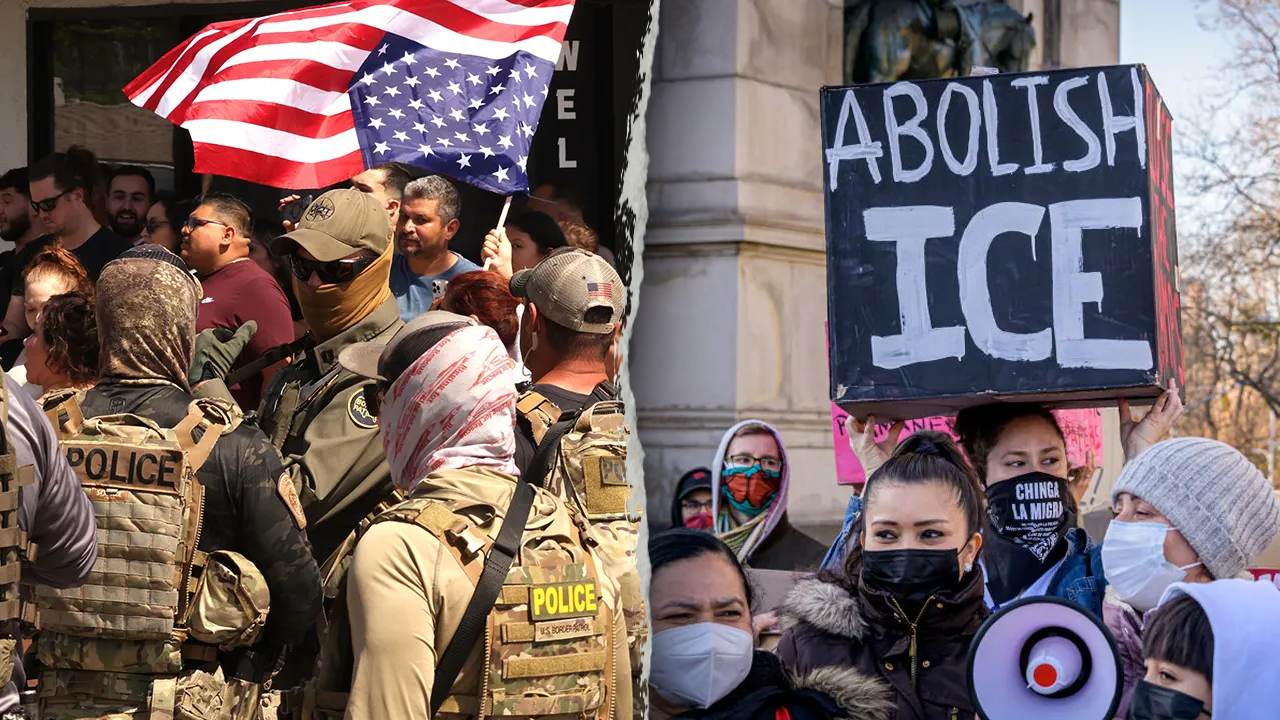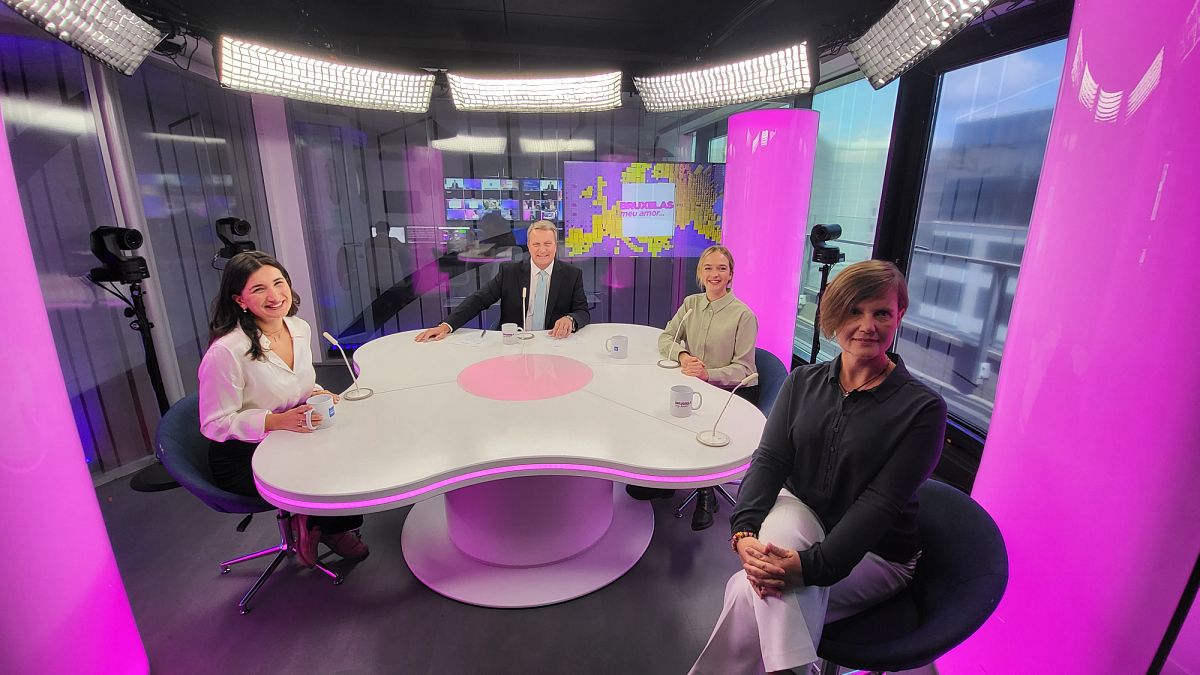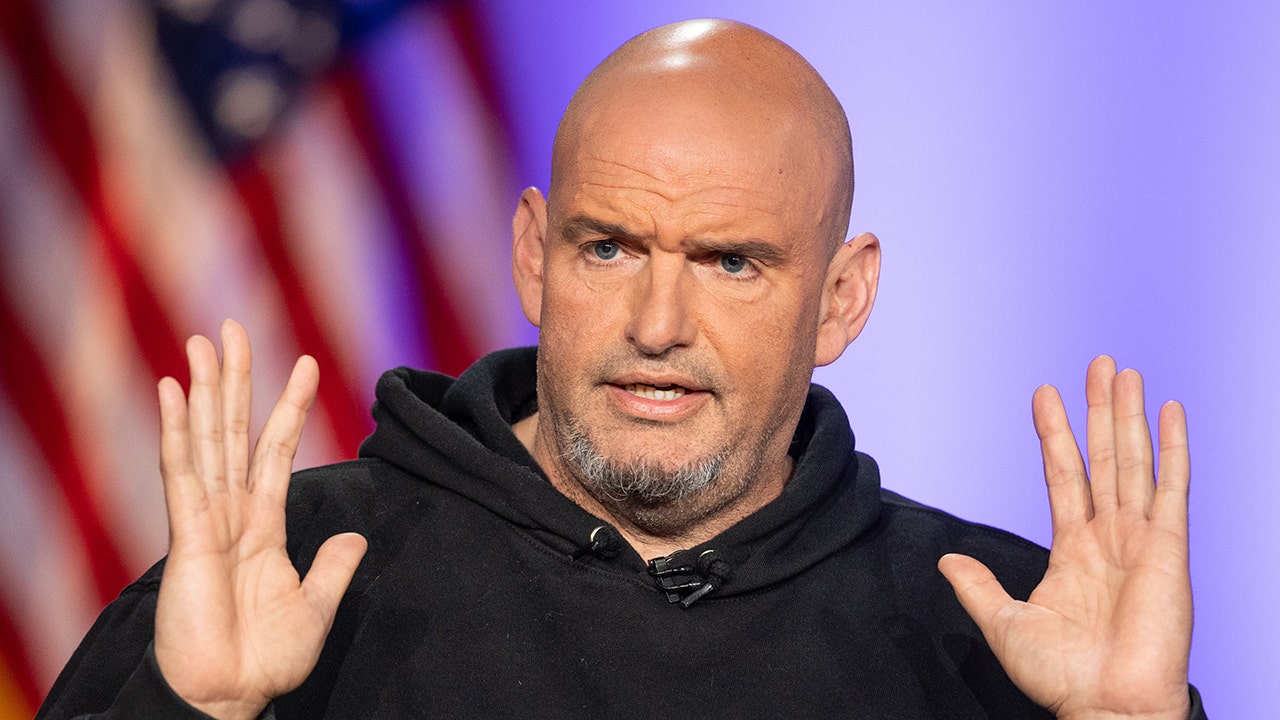News
Sikh separatist, targeted once for assassination, says India still trying to kill him

Sikh activist Gurpatwant Singh Pannun stands for a photograph in New York City on Oct. 25.
Jeenah Moon for NPR
hide caption
toggle caption
Jeenah Moon for NPR
It is a phone call Gurpatwant Singh Pannun remembers well. It was June 17, 2023. After playing phone tag for a day, he and his close aide in Canada finally managed to connect.
“He told me that he was informed by the Canadian intelligence officials that there is a serious threat to his life and he might be killed,” Pannun recalled.
On that call, his aide, Hardeep Singh Nijjar, said that assassins were coming for Pannun as well. The conversation is seared into Pannun’s memory because of what Nijjar told him — but also because it was the last time the two men spoke.
The following day, gunmen shot Nijjar dead in the parking lot of a Sikh temple outside Vancouver, Canada. Canadian authorities have arrested four Indian nationals in connection with the murder.
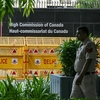
Nijjar’s warning for Pannun, a dual U.S.-Canadian citizen, also proved prescient. Five months later, the U.S. Justice Department announced it had foiled a plot to assassinate Pannun in New York City. An Indian national was charged in the alleged murder-for-hire scheme, and has pleaded not guilty.
Nijjar’s killing and the purported plan to assassinate Pannun are part of a broader trend around the world in which foreign governments seek to silence critics overseas, including in the United States.
Last week, prosecutors announced charges against a new defendant in Pannun’s case: a former Indian intelligence officer, Vikash Yadav, who allegedly orchestrated the plot.
In the last few years, the Justice Department says it has foiled at least four assassination plots tied to a foreign power. Three of those allegedly link back to Iran, including one targeting Iranian-American activist and journalist Masih Alinejad. The fourth — allegedly targeting Pannun — involves India.

The Indian government denies any involvement in Nijjar’s killing or the purported plot against Pannun.
After the U.S. announced charges in the Pannun case, India set up its own internal inquiry to investigate. Just over a week ago, Indian officials were in Washington for meetings to discuss the case and for both sides to provide an update on their respective investigations.
The State Department called the meetings “productive.” The Indian Embassy did not respond to a request for comment.
“Well-documented” threats from India
Pannun, who was born in India but moved to the U.S. in 1992, told NPR earlier this year that the threat to his life came as no surprise.
“I have been threatened directly by the Indian parliamentarians while sitting in the Indian parliament,” he said. “They have stated that we are going to kill Pannun, even if we have to do a surgical strike. These are well-documented, the statements of the government officials.”
In particular, he points to remarks Indian Prime Minister Narendra Modi has made several times in recent years, including early this July in India’s parliament.

“Today, post 2014, India enters your home and kills you,” Modi said before lawmakers. “Carries out surgical strikes. Carries out air strikes.”
In Pannun’s view, Modi’s threat about how India deals with its perceived enemies is directed at people like him.
Pannun is a Sikh separatist. He is a leading figure in the Khalistan movement, which wants to create an independent Sikh homeland carved out from northern India. He and his organization, Sikhs for Justice, have been spearheading a global referendum for independence.

Khalistan referendum campaign
Pannun is a practicing attorney. At his law office in Queens, boxes of case files and legal books lined the walls. His legal work pays the bills, but much of his time he dedicates to the Khalistan cause.

Sikh activist Gurpatwant Singh Pannun stands for a photograph in New York City on Oct. 25.
Jeenah Moon for NPR
hide caption
toggle caption
Jeenah Moon for NPR
In his office, he has a green screen set up and camera for the videos he produces and posts online for the campaign.
Behind his desk hung a yellow and blue Khalistan flag. On the wall was a framed picture of the Golden Temple in Amritsar, India, the holiest site in Sikhism.
Pannun and Nijjar first worked together to document the events surrounding the Indian military’s attack on the temple in 1984, known as Operation Blue Star, and the government’s bloody, nearly decade-long effort to stamp out an armed Sikh insurgency fighting for independence. Thousands were killed.
The two men then shifted their focus to the future and started the Khalistan referendum campaign. The idea is to have Sikhs around the world vote on the question of creating an independent Sikh state. It is an unofficial referendum, and not legally binding.
Pannun has dedicated his life to the campaign. He told his family years ago that his advocacy work would put him at odds with India’s government.
“I have told them very clearly what it would entail and where it can lead,” he said. “That’s why when we are talking about assassination attempts and killings and threats, that doesn’t come as a surprise to us. That doesn’t come as a surprise to the family.”
“Survive to the finish line”
The Modi government in 2020 designated Pannun and Nijjar terrorists for their separatist work.
Pannun rejects the allegation. He said he follows the law, and that his campaign is a peaceful, democratic process.
India’s response, he said, has been to come after him, and that has forced him to look over his shoulder.
“That’s how I’m going to survive to the finish line,” he said.
The alleged assassination plot was not a one-off. He said there are active threats against his life right now. That danger has not forced him to end his separatist work, but it has forced him to take precautions.

At his office, a security team screens visitors with a metal detector. Body guards ferry him to and from work. He had security before the alleged plot, he said, but he’s beefed it up since the case was charged last year.
“Today, what you see is very, very obvious,” he said of his security detail. “This is a message that I’m giving that I’m not out there to do it in suicide mode. I’m going to continue to campaign and I’m going to continue to protect myself.”
Still, the threat on his life has altered, to a degree, how he operates. The interview with NPR was in his office, in part, because it is secure.
“I cannot just abruptly take a car and jump in the car and go anywhere,” he said. “That’s what I have been advised by my security details. That’s where you get killed.”
He’s changed his residence several times since the alleged plot was foiled. He doesn’t go to restaurants much. He said he hasn’t been to the grocery store in years; he gets things delivered instead. And he’s curtailed his on-the-ground campaign appearances.
Boycotting Indian-owned businesses
He remains very active online, though, and regularly posts videos on Instagram. Some of them show pro-Khalistan rallies, while others offer heated challenges against India or Indian officials.
In one from last November, Pannun declares: “Sikhs are facing existential threat under the successive India regimes.”
“We are going to target India,” he adds. “From Air India to made in India, we are going to ground everything.”

Some Indian media outlets interpreted that as a threat in light of the 1985 bombing of an Air India passenger jet flying from Canada to India that killed more than 300 people. A Canadian Sikh was found guilty in 2003 for involvement in the bombing. A Canadian court acquitted two others.
Pannun pushed back, calling that interpretation of his video an “Indian narrative,” and saying he was calling for a Sikh boycott of Indian-owned businesses.
“The objective behind it is that I want the (Sikh) community to stop funding their own genocide,” he said. “I want the community not to spend a dime on Indian-owned businesses.”
Breaking up the Indian state
He’s also come under criticism over posters with the words “Kill India” and the names and photos of Indian officials that the placards claim were involved in Nijjar’s killing. One of the officials pictured was Sanjay Kumar Verma, India’s high commissioner, who was among the six Indian diplomats recently expelled from Canada.
Pannun said his goal is to break up the Indian state.

Gurpatwant Singh Pannun stands for a portrait in New York City.
Jeenah Moon for NPR
hide caption
toggle caption
Jeenah Moon for NPR
“I say to kill Modi politics. We are in America. We say ‘kill Biden politics,’ we say ‘kill Trump politics,’” Pannun said. “’Kill India’ means balkanize India. India is not a human being. India is in a union of states. We want to balkanize India.”
Some of his posts on social media are about his late colleague and friend, Nijjar. His assassination, Pannun said, has left a hole.
“You feel the vacuum, but then you also get the strength and the courage: what Nijjar stood for, for what he gave his life, for what he has spent the last 15, 16 years with us,” he said.
But Pannun also said there’s no time to sit back and grieve. There is work to be done, a campaign to run, despite the risks.
“I would rather take a bullet in my head than stop the Khalistan referendum campaign,” he said.

News
'Helping every dang soul': Beloved camp director was among those lost in Texas flooding

Just after the summer session ended in late June, Heart O’ the Hills camper Sydney Sutton sent this photo to the camp’s director, Jane Ragsdale, who was killed in the July 4 flooding in Kerr County, Texas.
Erika Sutton
hide caption
toggle caption
Erika Sutton
Jane Ragsdale spent her summers by the Guadalupe, the very river that killed her a week ago today in the catastrophic July Fourth flood. Mention her name in Kerrville, Texas, this week, and folks tend to do two things: tear up and smile.
“I mean I can’t tell you how many people, acquaintances of mine say, ‘My dear, dear friend died.’ And then they said, ‘Did you know Jane Ragsdale?’ and I say, ‘Yeah, I did,’ ” said Karen Taylor, who lives in nearby Hunt, Texas. For her, Ragsdale was West Kerr County personified.
“Everybody’s friendly here, but she embodied that friendliness and generosity and love for others. I just can’t imagine life without her,” Taylor said.

Ragsdale, who was in her late 60s, did a lot of things, but she’s best known as the owner and director of Heart O’ the Hills camp for girls. She was born into the business.

Jane Ragsdale ran the Heart O’ the Hills camp for girls in Kerr County, Texas. The camp was between sessions when the deluge hit. The only person killed there was Ragsdale.
Kerrville Daily Times
hide caption
toggle caption
Kerrville Daily Times
Her family bought a boys’ camp, Camp Stewart in 1966, the year Ragsdale turned 9. They bought Heart O’ the Hills about a decade later. Ragsdale helped run it from the start. By 1988, she was in charge.
Unlike Camp Mystic, the girls camp where at least 27 perished when the deluge hit, Heart O’ the Hills was between sessions. The only person killed there was Ragsdale.

“I’ve never in my life met someone like Jane,” said Kathy Simmons, who was a good friend of Ragsdale’s.
Simmons was at Heart O’ the Hills picking up her granddaughter just the week before the flood, on the last night the camp was open.
“We had a candlelight service on the river at 9 p.m., and it was so beautiful. There were prayers and there were songs,” Simmons said. “Jane always led the children in songs. And every one of those girls and those counselors absolutely idolized her.”

After Heart O’ the Hills camper Sydney Sutton sent a photo of herself to Jane Ragsdale, the camp director wrote this letter back to Sydney.
Erika Sutton
hide caption
toggle caption
Erika Sutton
The summer camps on the Guadalupe River in Kerr County are institutions. Generations of girls and boys go through them, often forming life-long attachments. Simmons considered Ragsdale the heart and soul of her camp, both spiritual leader and educator.
“I mean, Jane taught these girls how to change a tire, how to ride a horse, how to swim, how to shoot a gun, archery, cooking. I mean, the necessities of life,” Simmons said.
In the off-season, when she wasn’t running the camp, Ragsdale often traveled to Guatemala, where she volunteered as an interpreter and a project organizer. It was mission work she started doing when she was 19 and studying journalism. She was a badass. But she was also about the sweetest person in town.
“Jane was one of the most genuine, kind, honest people and very intelligent, very warm,” recalls Mindy Wendele, president and CEO of the Kerrville Area Chamber of Commerce. “She had a smile that you knew Jane Ragsdale was smiling at you.”
Wendele grew up with Ragsdale, who she describes as a real go-getter: deeply involved in the Chamber of Commerce, a board member of the local liberal arts college, a class leader in high school.
“Anytime that we were out with Jane and her family at Heart O’ the Hills, we had just a fabulous time, just fabulous memories out there,” Wendele said.
Now, with some of the camps and almost all of the riverfront in ruins, Kerr County faces a monumental clean-up and rebuilding effort.
Another reason to miss Jane Ragsdale.
“Oh, she would be out there volunteering. She would be out there clearing property,” Simmons said. “She would have her boots on, her gloves on, she would be helping every dang soul that needed to be helped.”
So the flood took one of Kerr County’s most capable citizens, but Ragsdale’s influence on the community and the girls who came through Heart O’ the Hills camp is going to last a long time.
News
Video: Clashes After Immigration Raid at California Cannabis Farm

new video loaded: Clashes After Immigration Raid at California Cannabis Farm
transcript
transcript
Clashes After Immigration Raid at California Cannabis Farm
Federal agents fired crowd control munitions at protesters who blocked a road outside of the farm. Some demonstrators threw objects at the agents’ vehicles.
-
Please make a path for emergency vehicles or chemical munitions will be deployed.
Recent episodes in U.S.
News
Trump heads to Texas as recovery efforts from deadly flood continue
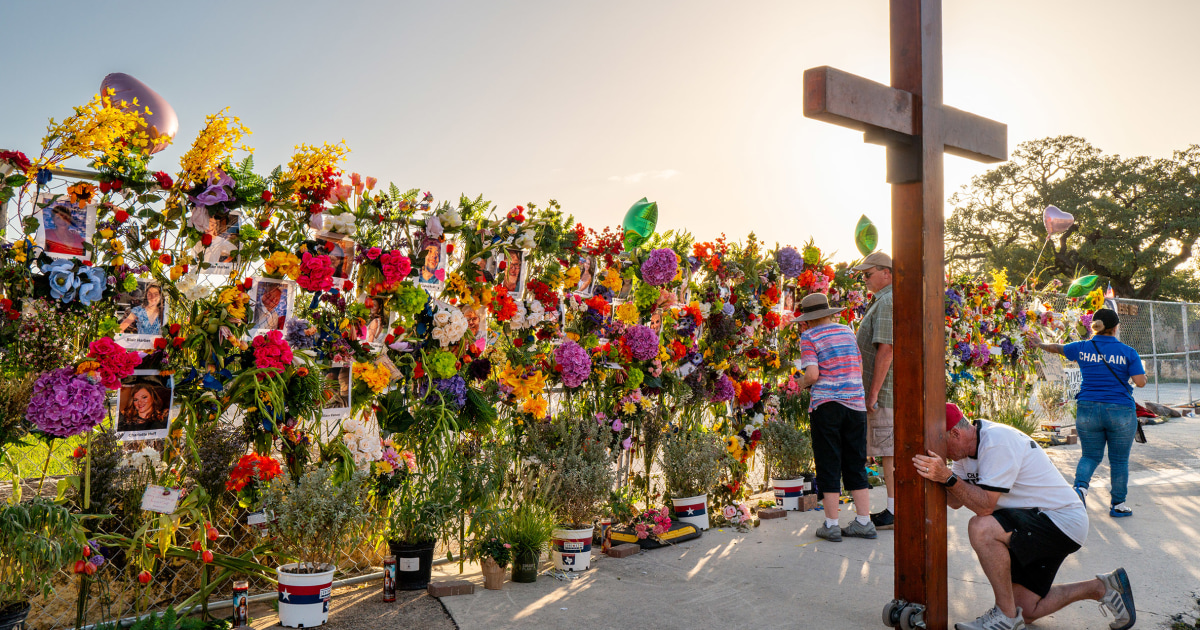
President Donald Trump and first lady Melania Trump will travel to Texas on Friday to meet with first responders and grieving families in the aftermath of last week’s catastrophic flooding that has left more than 100 people dead.
During his visit, Trump is expected to receive a briefing from local elected officials and meet with victims’ relatives. He will be joined by Texas Gov. Greg Abbott.
Republican Sens. Ted Cruz and John Cornyn told reporters this week that they planned to travel with Trump to tour the flood damage. It is unclear whether state Attorney General Ken Paxton, a staunch ally of the administration who is challenging Cornyn in next year’s GOP primary, will join them.
Authorities continue to search miles of the Guadalupe River for more than 150 people who remain missing as hopes of finding more survivors dwindle. Among those confirmed or feared dead are 27 children and counselors at Camp Mystic, a Christian summer camp in Hunt.
Trump on Sunday signed a major disaster declaration for Texas to make federal funding available for hard-hit Kerr County, where nearly 77% of voters backed him in the 2024 election.
The trip to Texas will be Trump’s second to the site of a natural disaster since he was inaugurated for his second term; he visited Los Angeles in January after a wildfire devastated large swaths of Southern California. During his first term, he made multiple trips to Texas in 2017 in the aftermath of Hurricane Harvey and its deadly floods. The same year, he traveled to Puerto Rico to survey damage caused by Hurricane Maria.
The Trump administration has faced criticism from officials and lawmakers at various levels of government who have argued that recent job cuts at the National Weather Service and the National Oceanic and Atmospheric Administration, alongside plans to shutter the Federal Emergency Management Agency, prevented accurate forecasting and worsened the effects of the floods. Administration officials have repeatedly rejected those assertions.
Trump has pledged to “get rid” of FEMA, which is part of the Department of Homeland Security, and his administration has overseen a largely voluntary exodus of experienced personnel at the agency, fueling concerns about its ability to promptly respond to disasters. The concerns were heightened by a new policy from Homeland Security Secretary Kristi Noem mandating her approval for any agency spending in excess of $100,000.
Asked by NBC News on Thursday whether the new policy delayed FEMA’s response to the tragedy in Texas, Trump defended Noem.
“We were right on time. We were there — in fact, she was the first one I saw on television,” Trump told “Meet the Press” moderator Kristen Welker in a phone call. “She was there right from the beginning.”
Criticism of the disaster response has also focused on Kerr County’s emergency management system after reports indicated local officials did not use warnings from FEMA to send text alerts when the severity and speed of the flooding heightened, catching hundreds of people in a region known as “flash flood alley” by surprise. In addition, Kerr County, which has a population of more than 50,000 people, had no siren system to alert residents, in part because some local officials felt it was too expensive to install.
Trump called for additional flood alarms in Texas on Thursday, though he argued that the storm was unprecedented and that “nobody ever saw a thing like this coming.”
“After having seen this horrible event, I would imagine you’d put alarms up in some form, where alarms would go up if they see any large amounts of water or whatever it is,” he told NBC News.
Joe Herring, the mayor of Kerrville, told MSNBC’s Katy Tur this week that the state rejected an effort to install a siren system nearly a decade ago.
“The county government looked into that in 2017, and from what I heard, their grant application was denied,” Herring said. “I wasn’t in government at that time, but it sounds like we talked about it, we asked for help, and we were denied before.”
-

 Business1 week ago
Business1 week agoSee How Trump’s Big Bill Could Affect Your Taxes, Health Care and Other Finances
-

 Culture1 week ago
Culture1 week ago16 Mayors on What It’s Like to Run a U.S. City Now Under Trump
-

 News1 week ago
News1 week agoVideo: Who Loses in the Republican Policy Bill?
-

 Politics1 week ago
Politics1 week agoVideo: Trump Signs the ‘One Big Beautiful Bill’ Into Law
-

 Science1 week ago
Science1 week agoFederal contractors improperly dumped wildfire-related asbestos waste at L.A. area landfills
-

 Technology1 week ago
Technology1 week agoMeet Soham Parekh, the engineer burning through tech by working at three to four startups simultaneously
-
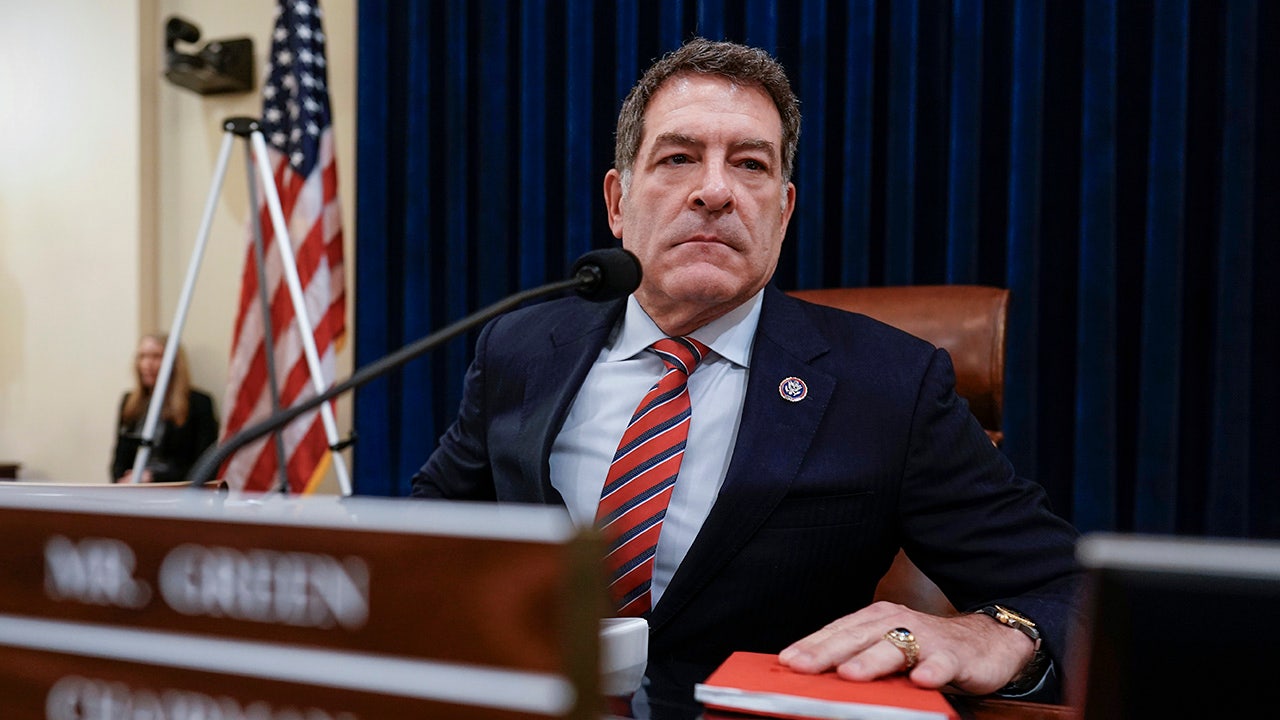
 Politics1 week ago
Politics1 week agoCongressman's last day in office revealed after vote on Trump's 'Big, Beautiful Bill'
-

 World1 week ago
World1 week agoRussia-Ukraine war: List of key events, day 1,227



